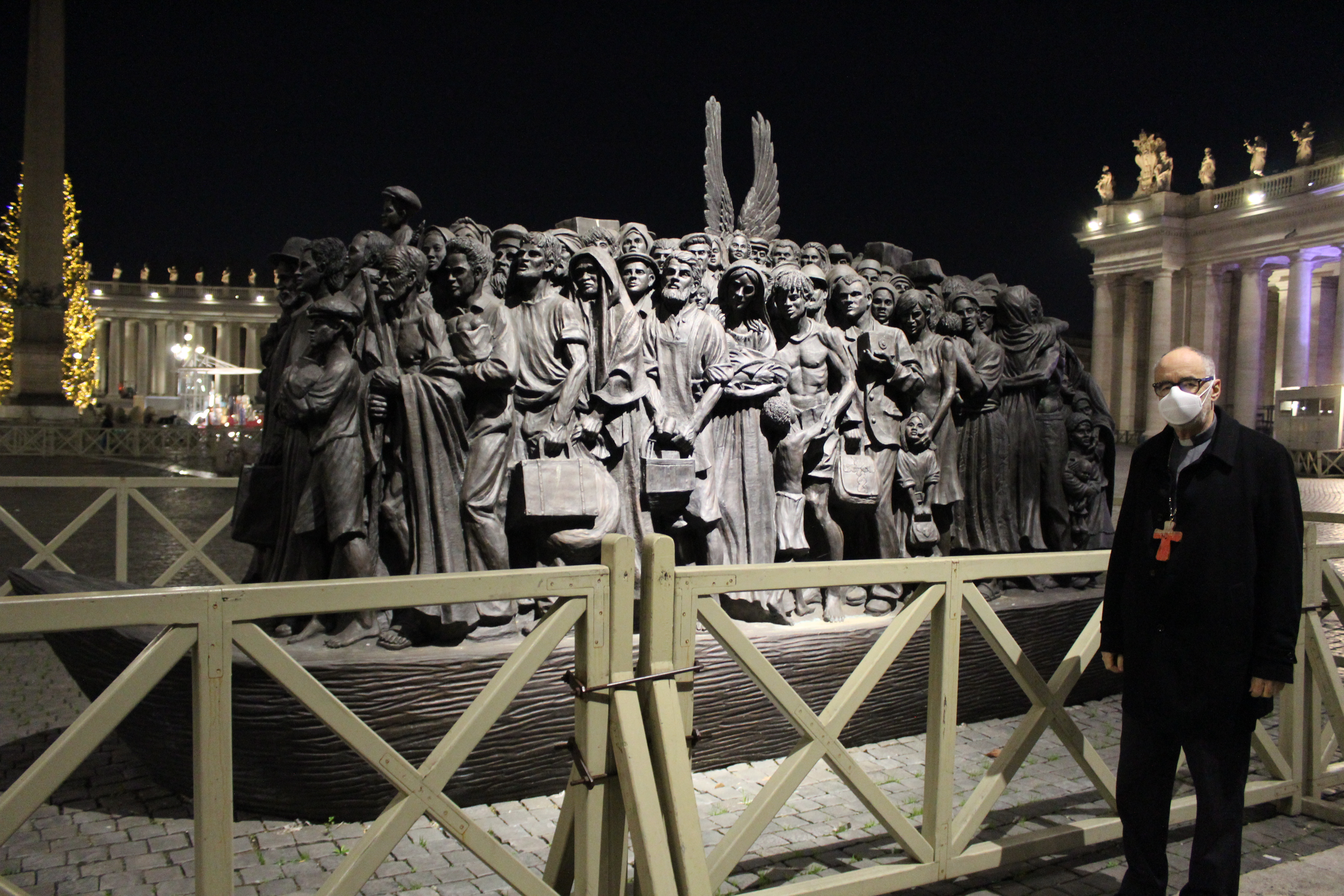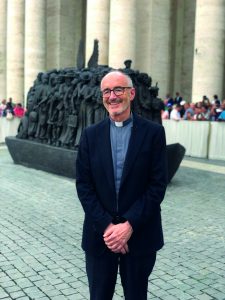In This Time of COVID-19, Young People Respond to Migrants and Refugees

In late November 2020, Cardinal Michael Czerny found himself at Sophia University in Tokyo – on-line, of course – to address a gathering of faculty, students and staff as well as Church representatives on the teaching of Pope Francis about the world during and after the pandemic. Two threads in his talk, the recent encyclical Fratelli tutti and a focus on young people, are brought together here.
++++++++++++++++++++++++++++++++++++++++++
Since March 2020, Pope Francis has been reminding us that, like no other event in living memory, the COVID-19 crisis evokes both our vulnerability and our interdependence. This is not necessarily bad. In fact, our vulnerabilities and interdependencies unite us.
“The pandemic has put us all in crisis,” the Holy Father says. “But let us remember that after a crisis a person is not the same. We come out of it better, or we come out of it worse. This is our option.”[1] And we will not emerge from it better if we fall back into the temptations of individualism, whether personal or collective, often expressed in the form of political nationalisms and narrow economic interests.[2]
In his encyclical Fratelli tutti (FT), the Holy Father addresses the theme of migrants and refugees and the role of young people.
As young people, I know you strive for a better world. I know you want to reject an economy of exclusion, an ideology of individualism, a culture that discards people, the degradation of our common home driven by false notions of progress. I know you want to emerge from the COVID-19 pandemic full of vitality and solidarity and other superb antibodies.
The answer to this very modern crisis can, I believe, be found in some ancient and timeless teachings from the Christian tradition. Nowhere is this clearer than with the encyclical Fratelli tutti, to which I now turn.
Fratelli tutti talks about the role of young people in creating this culture of fraternity, solidarity, and generosity or gratuitousness. First, the pope says, you should appreciate rootedness and history. Think of it this way: if a plant has weak roots, it won’t survive. The same is true for a culture without a sense of history and common narrative. If we insist on starting from zero, says Pope Francis, we are left merely with “limitless consumption and expressions of empty individualism.” (FT 13)
Like everyone else, you should reject this hollow vision and embrace the human and spiritual riches that come from past generations. One way of depriving young people of this connection to their roots is by discarding the elderly. Think of all the needless deaths of old people as a result of the coronavirus or environmental disasters—this is part of a “throwaway world,” says Pope Francis. “All of us have a responsibility for the wounded, those of our own people and all the peoples of the earth,” the Holy Father says. “Let us care for the needs of every man and woman, young and old, with the same fraternal spirit of care and closeness that marked the Good Samaritan.” (FT 79)
To achieve this, Fratelli tutti calls for social dialogue that spawns a new culture, and this must encompass dialogue between generations. As the encyclical notes, “A country flourishes when constructive dialogue occurs between its many rich cultural components: popular culture, university culture, youth culture, artistic culture, technological culture, economic culture, family culture and media culture..” (FT 199)
In this vein, Fratelli tutti stresses the supreme importance of the value of solidarity. This in turn calls for a commitment to education and formation, which must encompass the role of families and teachers, since “The values of freedom, mutual respect and solidarity can be handed on from a tender age.” (FT 114) Education cannot simply be a technical training of me; it must also be moral, communal, forming us.
Young people also have what it takes to lead in openness to migrants and refugees, to those who are different from us. “For this reason,” says Pope Francis, “I especially urge young people not to play into the hands of those who would set them against other young people, newly arrived in their countries, and who would encourage them to view the latter as a threat, and not possessed of the same inalienable dignity as every other human being.” (FT 133)
What Pope Francis teaches, especially in Fratelli tutti, gives us a moral roadmap to emerge stronger, less fearful, and more human. It is in your hands, young people, to forge this future, including by extending a welcoming hand to migrants, refugees, and all vulnerable and marginalized people. Are you up to the challenge?
+++++++++++++++++++++++++++++++++++++++++
[1] General Audience, 19 August 2020.
[2] Pope Francis, Life after the pandemic (LEV, 2020). Pape François, La vie après la pandémie (LEV, 2020).




Peter Bisson
Posted at 09:22h, 15 FebruaryThank you +Michael!